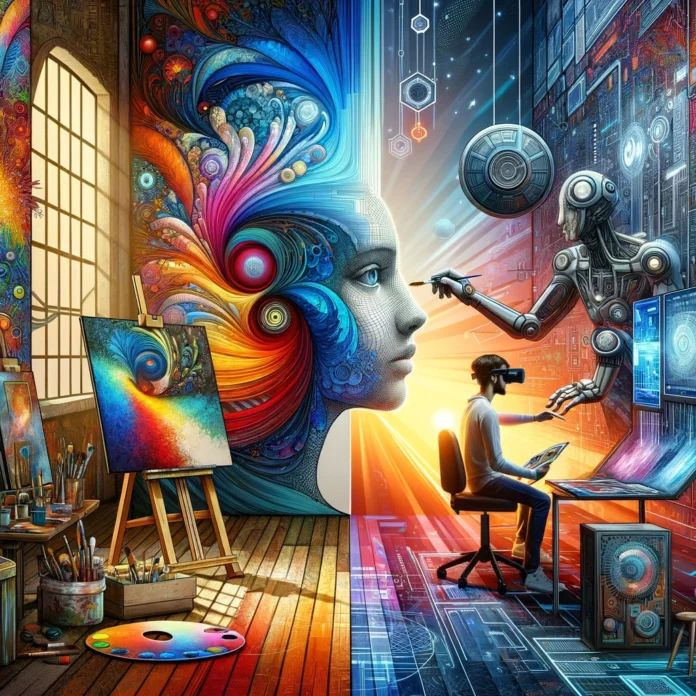In recent years, generative AI has surged into the spotlight, emerging as a groundbreaking force across various sectors, including art, writing, and technology. This transformative trend is not just reshaping existing industries but is also paving the way for new types of creativity and innovation.
What is Generative AI?
Generative AI refers to artificial intelligence technologies that can generate new content, from realistic images and music to written text and code, based on the patterns and information it has learned from large datasets. Unlike traditional AI, which analyzes data and provides insights, generative AI goes a step further by creating original outputs that are coherent and contextually relevant.
Impact on Creative Industries
The art world has seen one of the most significant impacts of generative AI. Artists and designers are using tools like DALL-E, a program capable of creating detailed images from textual descriptions, to push the boundaries of creativity and explore new artistic possibilities. These technologies enable creators to conceptualize and visualize ideas that were previously difficult or impossible to achieve.
Revolutionizing Content Creation
In media and content creation, AI-driven tools are becoming indispensable. For instance, GPT (Generative Pre-trained Transformer) models can draft articles, generate creative writing, and even code software. This capability is revolutionizing journalism, publishing, and software development, allowing for more efficient workflows and fostering innovative approaches to traditional practices.
Ethical Considerations and Challenges
With the rise of generative AI, ethical considerations have become paramount. Issues such as copyright infringement, authenticity, and the potential for misuse need to be addressed. As AI-generated content becomes more indistinguishable from human-created content, determining ownership and accountability is increasingly challenging.
Furthermore, the potential of AI to perpetuate biases present in its training data is a critical concern. Ensuring that AI systems are fair and unbiased requires careful consideration of the data they are trained on and ongoing monitoring of their outputs.
Future Prospects
Looking ahead, generative AI is expected to continue its trajectory of rapid development and adoption. This technology holds the promise of further automating tasks, enhancing creative processes, and even tackling complex problems like climate change and medical research through innovative solutions.
The integration of AI into various facets of life and work is becoming more prevalent, and as it does, society will need to adapt to the shifts it brings. The conversation around generative AI is evolving from what the technology can do to how it should be ethically and effectively implemented to benefit all aspects of human endeavor.
Conclusion
Generative AI is more than a technological trend; it’s a pivotal element in the next wave of digital transformation. As we navigate its potentials and pitfalls, the focus should be on leveraging this technology to enhance human capabilities and address pressing global challenges. By doing so, we can harness the full potential of AI to create a more innovative and equitable world.
This emergence and integration of generative AI into mainstream applications underscores its potential and highlights the ongoing need for robust dialogue around its ethical use and long-term impact on society. As we stand on the brink of this AI revolution, the possibilities—and responsibilities—are immense.





